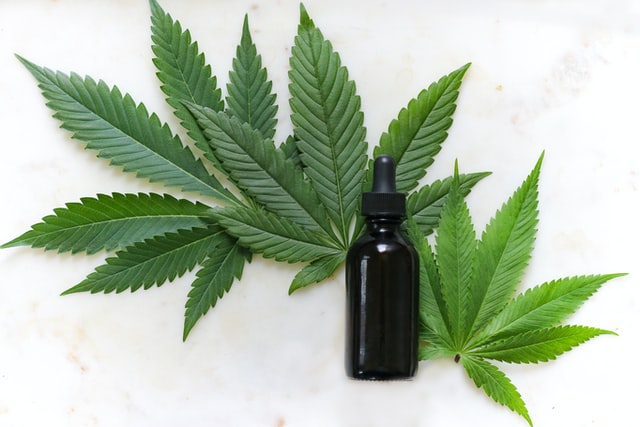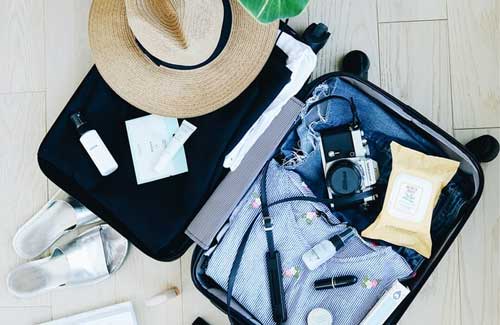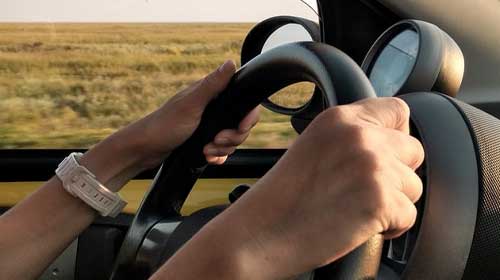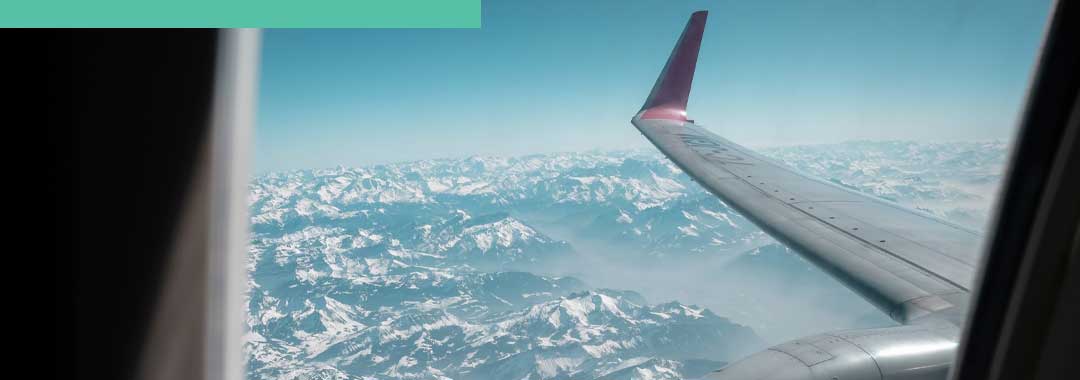No products in the cart.
Summer is on the way and the future looks bright as COVID restrictions continue to ease, which means that many people are looking forward to traveling again. However, if you do have an imminent trip planned, it is important to stay up to date on the most current security guidelines, and this can be especially important when you are traveling with CBD. So, what do you need to know?
Table of Contents
hide
Plane Travel With CBD Oil
If you have ever been on an airplane in the past, you are probably already aware of some of the basic guidelines for what is acceptable to bring on board. Still, it is always helpful to be familiar with the current Transportation Security Administration (TSA) travel check list in order to ensure a smooth trip through security, and this includes plane travel with CBD oil.
Previously, the TSA had prohibited passengers from carrying any form of cannabis, in either checked bags or carry-on luggage. Fortunately, the guidelines were finally updated in 2019 to allow passengers to travel domestically with CBD, as long the products contain less than 0.3% THC — which is the psychotropic compound that is prevalent in commercial marijuana.

Declaring Items
According to their website, the TSA “allows larger amounts of medically necessary liquids, gels, and aerosols in reasonable quantities for your trip, but you must declare them to security officers at the checkpoint for inspection“.
TSA Liquid Restrictions
The most popular kind of CBD products are tinctures made from hemp extract, so if that is your method of choice then it is particularly important to be aware of TSA liquid restrictions.
Liquids on a plane
Presently, all liquids packed in carry-on luggage must follow the 3-1-1 liquids rule, which is:
- 3.4 ounces or less per container.
- 1 quart size, clear, plastic, zip top bag (all liquids must fit in the bag).
- 1 bag per passenger.
TSA Food Restrictions
Airports are known for having less than desirable food options that are usually either too expensive, not very good quality, or both. Some people try to plan for this by bringing their own food when they travel.
The TSA has a fairly extensive list of food restrictions, some examples of which include:
Alcohol
- Carry On Bags: Yes (Less than 3.4oz/100ml allowed)
- Checked Bags: Yes
(This does not apply to alcoholic beverages over 140 proof, which are prohibited in both carry-on and checked bags.)
Baby Food
- Carry On Bags: Yes
- Checked Bags: Yes
(Make sure to remove baby food from carry-on bags prior to screening, so that it is checked separately.)
Baby Formula
- Carry On Bags: Yes
- Checked Bags: Yes
(Make sure to remove any formula, breast milk, or juice from your carry-on bag so that they can be screened separately. You don’t need to be with your child in order to travel with breast milk.)
Bottled Water
- Carry On Bags: Yes (Less than 3.4oz/100ml allowed.)
- Checked Bags: Yes
Cereal:
- Carry On Bags: Yes
- Checked Bags: Yes
Edibles On A Plane
Can you bring CBD edibles on a plane? That depends on several factors. Technically, you should be able to, as long as you follow the TSA guidelines regarding food in general, but you would also have to declare it to security, and this may cause problems if the product is not properly labeled or if you can’t prove that it complies with the legal limit of THC. In this case, it is probably better to leave CBD edibles at home or in your checked baggage rather than try to bring it on the plane.

Domestically
Legally, you can travel anywhere within the 50 United States with any CBD product that contains under 0.3% THC. However, the laws are not quite so uniform when traveling to US territories.
- Guam: It is technically OK to bring your CBD product with you, but there have been previous instances of CBD shipments seized, regardless of having under 0.3% THC.
- Virgin Islands: CBD is legal and you can bring it with you.
- Puerto Rico: CBD is legal and you can bring it with you.
- Northern Mariana Islands: CBD is legal and you can bring it with you.
- American Samoa: All forms of cannabis are banned in American Samoa, including CBD, so you cannot bring it with you.
Outside of the U.S.
Outside of the U.S., what are the international guidelines for traveling with CBD? This will obviously vary greatly from country to country.
- Mexico: It is legal to take CBD across the Mexican border as long as it is clearly labeled as hemp derived.
- Canada: It is not legal to bring cannabis of any form over the Canadian border, including CBD products, even with medical authorization.
- Europe: It depends on the country, but the European legal limit for THC in CBD products is 0.2%, so that is something to keep in mind if you are planning to travel there. The exceptions to this are Bosnia and Herzegovina, where the possession of any form of cannabis is considered illegal.
- Asia: As with Europe, the legality of CBD is not consistent across the Asian continent. In China, hemp products are legal as long as they are under the 0.3% THC limit. However, Singapore has very restrictive cannabis laws and will impose harsh fines and penalties for carrying any form of cannabis, regardless of THC content. Bangladesh also has incredibly strict laws regarding cannabis, where possession can even result in the death penalty. That is why it is crucial to do thorough research on the specific country you are traveling to if you are considering on bringing your CBD!
- Africa: CBD use is still relatively rare in the African continent, and the only country that has legalized it so far has been South Africa. Products must contain less than 0.001% THC, and less than 0.0075% CBD, total.
- Australia: Like Europe, the legal THC limit for CBD products in Australia, as well as New Zealand, is 0.2%. However, in order to purchase or possess it, you must also have a medical prescription.
What You Can’t Bring On A Flight
So, what can’t you bring on a flight? The TSA has a number of items that are not allowed in carry-on bags. These include:
- Razors: Disposable and electric razors are both allowed in check in as well as carry-on baggage, but razor blades and safety razors with the blade must be checked.
- Lighters: Electric lighters are not allowed in checked or carry-on luggage. Disposable and zippo lighters are allowed in both as long as they are emptied, or they adhere to the Department of Transportation exemption, which enables travelers to carry lighters if properly enclosed in a DOT case.
- Ammunition: While ammunition is allowed on checked baggage as long as it is properly secured, you cannot bring it in your carry-on bag.
- Liquids: As stated previously, any liquids over 3.4oz/ 100ml are prohibited from carry-on bags.
When traveling domestically, the TSA states that capsule medications can be packed in a pill case, but it is best to keep them in the original container that was provided by your pharmacy, with their original labels. This can prevent potential delays or additional questioning.
Liquid medications are allowed on flights as long as they are under 3.4oz, but it is not necessary to put them into a plastic bag. However, they do have to be declared prior to screening.
Driving With CBD Oil
Another great way to travel through the U.S. is by taking a road trip. In this case, it is important to be up to date on individual state mandates and plan accordingly, depending on where you are going to end up.
Acceptable Products
While CBD is federally legal, there are still a number of states that place restrictions on having CBD products, including some that require a doctor’s prescription. The states that do not allow any type of CBD are Indiana, Kansas, Kentucky, Mississippi, North Carolina, South Carolina, South Dakota, Tennessee, and Texas.
Domestic/ National Parks
Since National Parks are located on federal land, they are also under federal guidelines. This means that you are allowed to have CBD products that contain under 0.3% THC, but cannabis products that exceed that amount are restricted, regardless if the park is located within a state that has completely legalized THC.

Benefits of CBD Oil When Traveling
Some people may understandably feel anxiety at the thought of traveling with CBD oil through different states.
What are the benefits of CBD oil when traveling? According to the Federal Drug Administration, companies are not allowed to make any medical claims with regard to CBD products, due to the lack of official medical trials. This is why researchers are working hard to determine whether CBD has any kind of anxiolytic properties, because the process to get approved is very expensive and can take many years.
If you are planning to bring your CBD product on a road trip, please make sure to protect it from harsh weather conditions. While most people know not to leave things in a hot car, it is important to note that the cold is not great for the consistency of CBD products either, as cooler temperatures can cause the liquids to thicken and separate. This doesn’t necessarily mean the product has gone bad, but it may require a little warming before it is ready to consume again.
Many families travel with their pets also, so keep up to date with the most recent information to help your dog who might experience anxiety during travels.
Best CBD Products To Travel With
There are some great options if you are looking for the best kind of CBD products to travel with. Tinctures may be popular, but they are not always convenient to take while bumping around in a car on the road. This is where topical lotions, gummies, and capsules have an advantage, because they are fast and relatively simple to consume.
- Topical Lotion: Topical lotions are perfect to use on trips to arid places and can help to keep your skin from getting too dry.
- Capsules: Capsules are a quick and straightforward way to take your CBD with you on the go.
- Gummies: Sweet and delicious, full spectrum cbd gummies are a super fun and convenient way to get your daily CBD when you’re away from home.
You can also whip up some delicious CBD meals to take along for a road trip, or even a fun picnic close by!
Disclaimer
Information obtained for this article was gathered from reputable sources, including the TSA. It is not, nor is it intended to be, legal advice. Regulations and guidelines are constantly fluctuating and we encourage you to do your own research regarding any upcoming travel plans.
Please seek advice from a lawyer or licensed professional if you are concerned about your particular situation. Safe travels!

